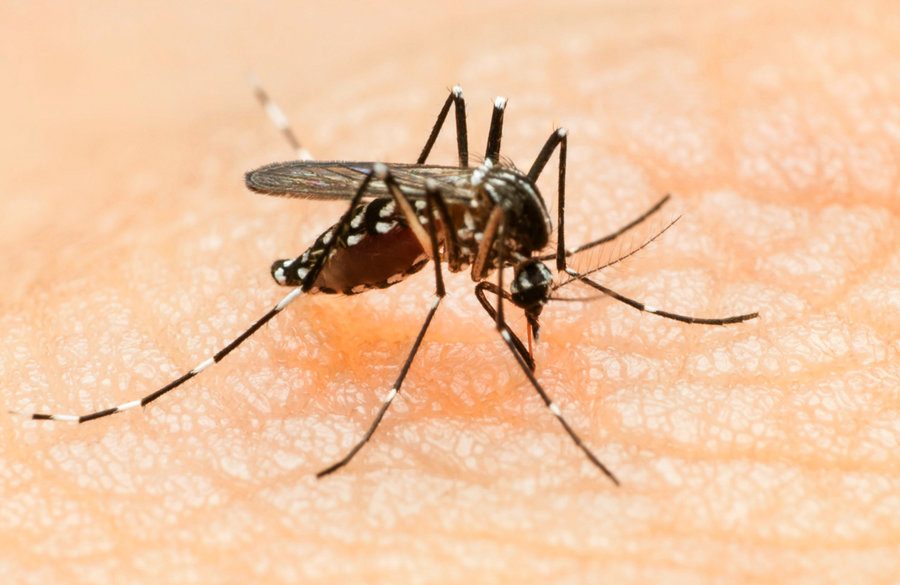
Zika virus continues to dominate health news and is causing a major health scare throughout the Americas. An outbreak of the virus, which started in Brazil in May 2015 is spreading explosively and now involves several countries in the South/Central American and Caribbean region. Cases have also been reported in Australia, Ireland, and in the U.S., all of which are related to recent travel to affected countries. One case in Texas may have been contracted through sex with a partner who had recently returned from Venezuela.
This outbreak is significant because it has brought to light the possibility that Zika virus may be dangerous to pregnant women and their babies. Health officials, including the WHO and Centers for Disease Control and Prevention (CDC), now “strongly suspect” a link between this recent outbreak of Zika and an increase in neurological problems and a condition called microcephaly in which babies are born with unusually small heads.
The World Health Organization on Monday Feb 1, 2016 declared the spread of the Zika virus a global public health emergency, signaling the seriousness of the outbreak. It is estimated, that up to 4 million people could be infected by the end of the year.
What is Zika virus?
Zika virus was first discovered in a monkey in Uganda in 1947, and is named after the Zika forest where it was discovered. Similar to the viruses that cause yellow fever and Dengue fever, it is native mainly to tropical Africa, with outbreaks in Southeast Asia and the Pacific Islands. The Brazil outbreak is the first time the virus has been documented in the Americas.
Studies conducted in Nigeria as far back as 1968 and during 1971–1975 showed that up to 40% of the persons tested had evidence of previous Zika virus infection. In the studies, children as young as 10 months old and up to 10 years of age who had fever, tested positive for Zika virus.
How Does Zika Spread?
It is spread by mosquitos, which carry the Zika virus from person to person in a manner similar to malaria transmission. The Aedes mosquito (tiger mosquito), which carries the virus, bites during the daytime and is different from the mosquito, which carries malaria.
If a pregnant woman is infected, the Zika virus can be transmitted to her baby while she is pregnant or around the time of birth. Transmission from person to person, through infected blood or sexual contact though rare, also occurs.
What are the symptoms?
The illness is usually mild with symptoms lasting from two days to a week, followed by full recovery. Only 1 in 5 persons infected develops symptoms and severe disease requiring hospitalization is not common. Symptoms include fever, rash, joint pain, and conjunctivitis (red eyes). Some people also may experience headache, muscle pain or vomiting.
The possible link to birth defects, including microcephaly has health experts concerned. In microcephaly, a baby is born with a small head because of under-development of the brain. It is unclear however if the increase in microcephaly cases is directly caused by Zika or if other factors are involved. Case control studies are to begin in two weeks to determine if Zika virus is implicated.
The other concern is the development of Gullain-Barre syndrome in some patients, a neurological complication in which the body’s immune system attacks its own nervous system causing weakness and sometimes paralysis.
Travel Warning for Pregnant Women
The CDC recommends that pregnant women avoid traveling to areas where Zika virus has been reported. Health officials have even gone as far as recommending that women in the affected countries in South/Central American and Caribbean avoid pregnancy during this outbreak.
What should you do if you have Zika?
There is no specific treatment for Zika and the development of a vaccine is at least 10 years away. Simply treat the symptoms:
- Get plenty of rest
- Drink fluids to prevent dehydration
- Take medicines such as acetaminophen or paracetamol to reduce fever and pain
Do not take aspirin or ibuprofen or other non-steroidal anti-inflammatory drugs. The symptoms of Zika are similar to Dengue fever and aspirin or ibuprofen can cause severe, often fatal bleeding in patients with Dengue fever.
Preventing Zika virus infection
Avoid mosquito bites by covering up, use insect repellent and keep windows closed or screened.
Clean up standing water where mosquitos can breed and fumigate your surroundings.


